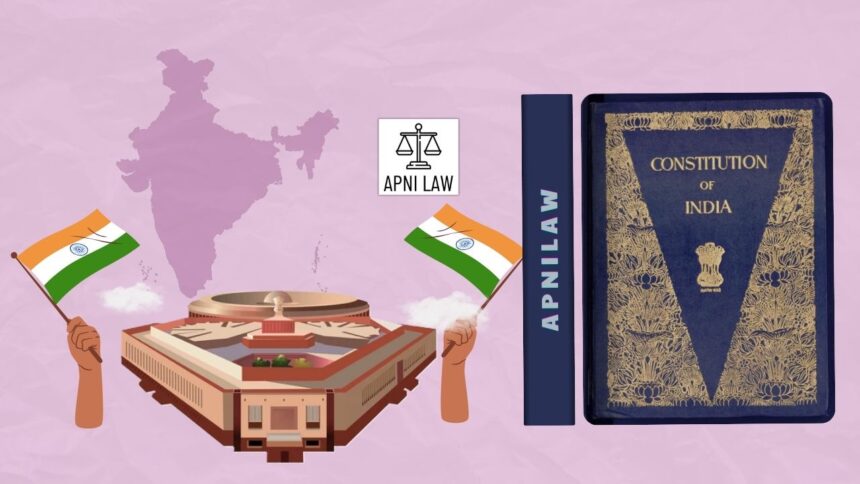Introductiom
Articles 243P to 243ZG of the Indian Constitution, inserted by the 74th Constitutional Amendment Act of 1992, establish the constitutional framework for urban local self-government in India. This framework, known as Part IXA, is often referred to as the Nagarpalika provisions. It aims to strengthen democratic decentralization, ensure citizen participation, and promote efficient urban governance through municipalities.
What Does Article 243P Define?
Article 243P provides essential definitions that form the foundation of municipal governance. It defines terms such as metropolitan area, municipal area, district, and population. A metropolitan area is described as an urban region with a population of 10 lakh or more, notified by the Governor. It also defines a municipality as an institution of self-government for urban areas, functioning under Article 243Q. These definitions ensure clarity and uniformity across states in implementing municipal laws and systems.
How Are Municipalities Constituted? (Article 243Q)
Article 243Q mandates the establishment of three categories of municipalities in every state, based on the size and nature of urban areas.
A Nagar Panchayat is formed for transitional areas shifting from rural to urban.
A Municipal Council governs smaller urban areas.
A Municipal Corporation serves larger urban centers with complex administrative needs.
The Governor decides the classification and boundaries of each category, ensuring appropriate governance structures for all urban regions.
What Is the Composition of Municipalities? (Article 243R)
Article 243R ensures that municipalities consist primarily of directly elected representatives chosen by the people of territorial constituencies. It also allows for the nomination of experts or special interest representatives who do not have voting rights. This blend of elected and nominated members ensures democratic participation while incorporating technical expertise in municipal governance.
What Are Wards Committees? (Article 243S)
Article 243S introduces Wards Committees in municipalities with a population of three lakh or more. These committees enhance local decision-making and promote citizen involvement in urban administration. They act as decentralized units, ensuring that issues at the neighborhood level are addressed efficiently within the larger municipal framework.
How Are Seats Reserved in Municipalities? (Article 243T)
To ensure inclusivity and representation, Article 243T mandates reservation of seats for Scheduled Castes (SCs), Scheduled Tribes (STs), and women. At least one-third of the total seats must be reserved for women, including those belonging to SC and ST categories. This reservation policy empowers marginalized groups and strengthens gender equality in local governance.
What Is the Tenure and Election Process? (Articles 243U–243V)
Article 243U fixes the tenure of every municipality at five years from its first meeting. Elections must be conducted before the term ends or immediately after dissolution to ensure continuity of governance.
Article 243V outlines disqualification criteria for members to maintain integrity and transparency in municipal functioning. These provisions ensure that elected representatives remain accountable to their constituents and the law.
What Powers and Functions Do Municipalities Have? (Article 243W)
Article 243W empowers state legislatures to assign municipalities responsibilities for economic development and social justice. The Twelfth Schedule of the Constitution lists 18 functional areas, including urban planning, water supply, public health, sanitation, and environmental protection. These responsibilities enable municipalities to play a vital role in improving the quality of urban life through direct local governance.
How Are Municipal Finances Managed? (Articles 243X–243Y)
Article 243X authorizes state legislatures to permit municipalities to levy, collect, and appropriate taxes, duties, tolls, and fees. This financial autonomy helps them generate revenue for developmental activities.
Article 243Y mandates the formation of a State Finance Commission every five years. The Commission reviews the distribution of financial resources between the state government and municipalities, recommending ways to strengthen local financial stability.
How Are Accounts and Audits Conducted? (Article 243Z)
Article 243Z requires municipalities to maintain accurate accounts and ensure regular auditing. This accountability mechanism promotes transparency and prevents financial irregularities in urban administration.
What Miscellaneous Provisions Exist? (Articles 243ZA–243ZG)
Articles 243ZA to 243ZG address various administrative and legal aspects of municipal governance.
Article 243ZA entrusts the State Election Commission with supervising and controlling municipal elections. Moreover, Article 243ZB extends these provisions to Union Territories, subject to Presidential modifications. Also, Article 243ZC excludes Scheduled and Tribal Areas from municipal application, though Parliament can extend them later. Articles 243ZD and 243ZE create District and Metropolitan Planning Committees to coordinate development between rural and urban regions.
Article 243ZF allows the continuance of pre-existing municipal laws until amended, while Article 243ZG bars courts from interfering in electoral matters related to municipalities.
Why Are These Provisions Significant?
The inclusion of Part IXA in the Constitution marked a major step toward urban decentralization. It brought uniformity, legitimacy, and structure to urban governance across India. These provisions empower citizens to participate in decision-making, ensure the inclusion of disadvantaged groups, and promote accountable and responsive administration. The 74th Amendment thus transformed municipalities into vibrant democratic institutions for urban India.
Which Areas Are Excluded from Part IXA?
Certain regions such as Scheduled Areas, Tribal Areas, and Cantonments are exempted from the operation of these articles. However, Parliament has the authority to extend these provisions to such areas with appropriate modifications to meet local needs and administrative requirements.
Conclusion
Articles 243P to 243ZG serve as the constitutional backbone of urban local governance in India. They ensure that municipalities function as autonomous democratic institutions, accountable to the people they serve. Through defined powers, financial independence, and inclusive representation, these provisions promote effective urban self-governance and strengthen the democratic framework of India at the city and town levels.








